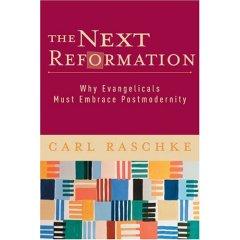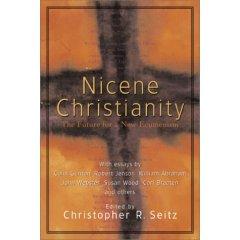
I just got three books in the mail yesterday and I am eager to crack them open and get into them.
The Conversion of the Imagination promises to be a good read, Richard Hays is one of the major players in NT intertextuality, and his book Echoes of Scripture is one of those books that transformed the way I approach the NT. While this book is a collection of old essays, most of which I have already read, Hays has supposedly edited and reworked them into a coherent whole. Hopefully he deals with intertextual theory a bit more in-depth, but regardless, I am sure I will be commenting more on this book down the road.
The next book is The Next Reformation a book that encourages evangelicals to embrace postmodernism rather than simply vilify it. This book is highly recommended from a friend, and I am looking forward to Raschke's take on Derrida and Company. To be honest, I enjoy reading Derrida, Barthes, Kristeva, and Foucault; even if I don't always understand them. Aside from that, the book has a really nice feel to it, so kudos goes out to the wonderful Brazos people. The last book which will probably take a back seat to the previously mentioned books, is a collection of essays by theologians I really respect. Nicene Christianity, as the title suggests is a theology book devoted to the Nicene Creed. I don't read a lot of proper theology so it will be good. Again, this is another
The last book which will probably take a back seat to the previously mentioned books, is a collection of essays by theologians I really respect. Nicene Christianity, as the title suggests is a theology book devoted to the Nicene Creed. I don't read a lot of proper theology so it will be good. Again, this is another




